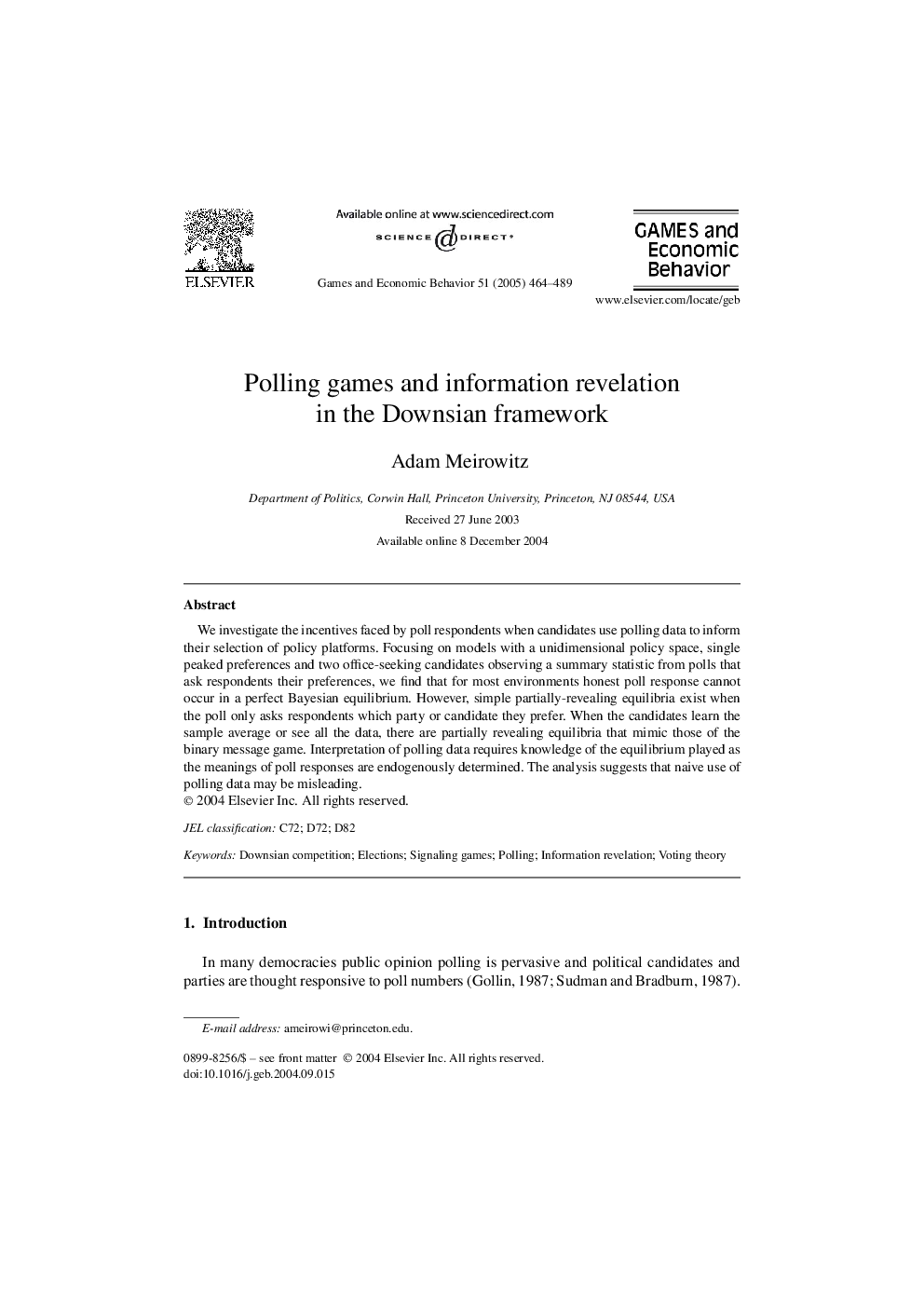| Article ID | Journal | Published Year | Pages | File Type |
|---|---|---|---|---|
| 9551719 | Games and Economic Behavior | 2005 | 26 Pages |
Abstract
We investigate the incentives faced by poll respondents when candidates use polling data to inform their selection of policy platforms. Focusing on models with a unidimensional policy space, single peaked preferences and two office-seeking candidates observing a summary statistic from polls that ask respondents their preferences, we find that for most environments honest poll response cannot occur in a perfect Bayesian equilibrium. However, simple partially-revealing equilibria exist when the poll only asks respondents which party or candidate they prefer. When the candidates learn the sample average or see all the data, there are partially revealing equilibria that mimic those of the binary message game. Interpretation of polling data requires knowledge of the equilibrium played as the meanings of poll responses are endogenously determined. The analysis suggests that naive use of polling data may be misleading.
Related Topics
Social Sciences and Humanities
Economics, Econometrics and Finance
Economics and Econometrics
Authors
Adam Meirowitz,
